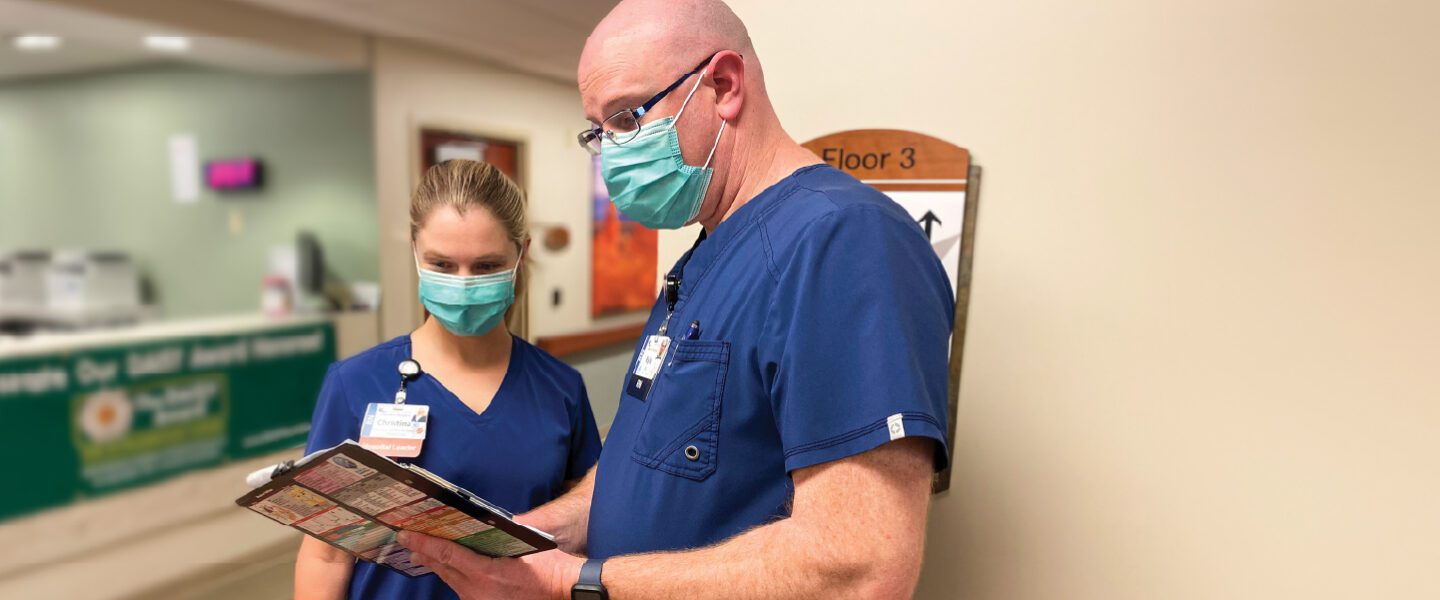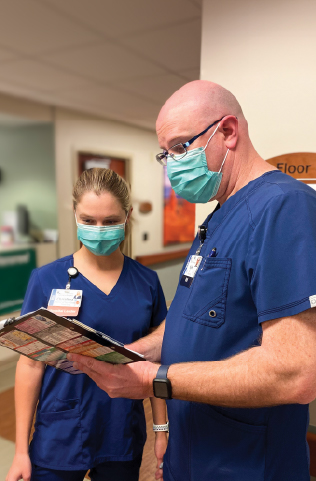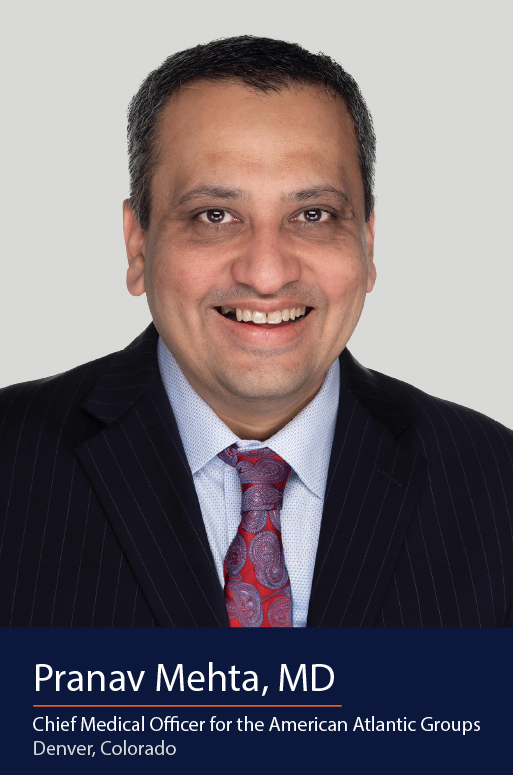HCA Healthcare’s access to resources makes quality care possible at the bedside.


With more than 36 million annual patient encounters, quality care and patient safety remain top priorities for HCA Healthcare. Our unique ability to bridge large-scale resources across the enterprise creates value for our facilities — helping to continuously improve quality and deliver the best possible patient outcomes. Leveraging our industry-leading resources is part of what sets HCA Healthcare apart.
“We are trying to impact healthcare from a scaling perspective in terms of providing exceptional quality to the patients and communities we are privileged to serve,” says Pranav Mehta, MD, who has been with the organization for a dozen years and is chief medical officer for the American and Atlantic groups. “Across HCA Healthcare’s 43 diverse markets — urban, suburban and rural — we utilize our scale to enhance capacity and throughput. We are harnessing our scale for efficiencies, ultimately connecting this to the best possible outcomes for our patients.

As a global, highly equipped institution,
HCA Healthcare is not paralyzed by changing tides in the healthcare space or the economy. Our strong foundation and strategic use of resources enable us to keep our sites of care open and engaged, even under pressure, in service to communities that would otherwise be stranded without care.
Delivering reliable, high-quality care starts with ensuring that colleagues and caregivers are equipped with necessary tools and training. Our resources and capabilities at every level ultimately exist to support our local patients. Our patients in communities across the nation are connected to the advanced abilities, innovations and resources made possible by our scale.
The narrative of HCA Healthcare’s enduring success extends beyond mere statistics. It encompasses the meaning behind those figures. HCA Healthcare achieves the goal of “best possible outcomes” by optimizing workflows, streamlining processes and investing in technologies that enhance patient care, states Dr. Mehta.
Innovation and leveraging data
HCA Healthcare’s strategy of utilizing its scale to innovate healthcare delivery enterprisewide involves adopting new technologies, implementing evidence based best practices and exploring care models that can transform bedside care, says Dr. Mehta.
Many of these initiatives, including enhancing patient safety, quality of care, risk management and regulatory compliance, are driven by industry leading, data-informed decision-making.
“When we leverage data to make decisions, we’re better informed in terms of our resource allocation decisions and how we analyze patients in terms of the demographics, disease patterns and treatment outcomes. Then [we’re] getting all of that in front of our physicians, nurses and clinicians so that they can impact care in real time,” says Dr. Mehta. “That’s really been the change in paradigm. Leveraging data in a very different way at the bedside is how we can, in the moment of care, provide the best possible care.”
When we leverage data to make decisions, we’re better informed in terms of our resource allocation and how we analyze patients.— Pranav Mehta, MD, chief medical officer for the American and Atlantic groups
The COVID-19 pandemic showcased HCA Healthcare’s ability to leverage its extensive resources, fostering creativity and data utilization to support patients with COVID-19-related respiratory failure who required mechanical ventilation and intubation.
“We were able to analyze our data and develop real-time tools for our [teams] and nursing leaders to use in our intensive care units to effectively manage ventilated patients,” says Dr. Mehta. “This approach facilitated seamless communication among the entire care team, including intensivists, nurses, respiratory therapists and other disciplines such as pharmacy, physical therapy and occupational therapy, depending on the patient’s condition.”
“We continuously adjusted and optimized ventilator settings to ensure the best outcomes for our patients,” he adds. “Our size and scale, coupled with our ability to leverage data in a patient centered manner, enabled us to provide our clinicians with tools that supported real-time adjustments, leading to better outcomes.”
HCA Healthcare’s comprehensive response to COVID-19 underscored its commitment to collecting and sharing research data, even as many organizations had to pause such efforts to address the immediate demands of the pandemic. According to Dr. Mehta, these collaborative efforts were extraordinary.
“We established several partnerships with leading national healthcare systems, including Harvard and the Mayo Clinic, to share data for the benefit of patients,” he says, noting that these partnerships facilitated quicker access to new and emerging treatments.
Making investments to resolve workforce shortages
The COVID-19 pandemic underscored issues such as access to care, health disparities and workforce shortages, particularly among nurses, says Dr. Mehta.
“It brought attention to the need for better infrastructure, advanced technology, financial sustainability and, most importantly, community engagement. Collaboration and stakeholder engagement are crucial to addressing common challenges and developing scalable solutions,” he explains.
To tackle ongoing workforce shortages, HCA Healthcare has expanded its affiliated lines and partnerships, including Parallon, Surgery Ventures, Sarah Cannon Research Institute, HealthTrust Performance Group and Galen College of Nursing.
“We faced a nursing workforce shortage and are addressing it proactively through our Galen College of Nursing,” says Dr. Mehta. “Within the next few years, we will be the largest provider of nursing education in the country. Recognizing the challenge, we have invested in our nursing workforce to meet it head-on.”
“On the physician side, we are training the physicians of the future, providing them with real-world experience in our community hospitals,” he adds.
Meeting diverse patient needs
Whether serving an urban, rural or suburban community, HCA Healthcare is uniquely resourced to deliver the kind of care each patient can rely on.
Quality patient outcomes are at the heart of how we show up, no matter where the need arises.
“Rural healthcare is essential for ensuring equitable access to healthcare and faces unique challenges due to geography, limited resources and workforce shortages,” says Dr. Mehta.
“We offer rural hospitals the ability to network and build relationships with us, ensuring that if their patients require a higher level of care, we can provide it and partner with them through various mechanisms.”
This outreach, combined with patient logistics and a national network of transfer centers, helps connect rural hospitals with services such as telemedicine and telehealth.
An exciting future ahead
Looking ahead, Dr. Mehta sees technological advancements as a true game changer. He says HCA Healthcare is positioning itself to be at the forefront of these advancements, especially in the realm of artificial intelligence (AI).
“When we talk about generative AI and its potential to transform healthcare clinically, administratively, and strategically, it represents a significant opportunity,” he says. “I firmly believe it will revolutionize what we do and how we do it in the future.”
The future will undoubtedly bring new obstacles of its own. Still, Dr. Mehta remains confident that HCA Healthcare will rise to those challenges.
“This next decade, fueled by all our investments, promises to be an exciting one,” he says. “I am very optimistic and positive about the direction we are headed”.


